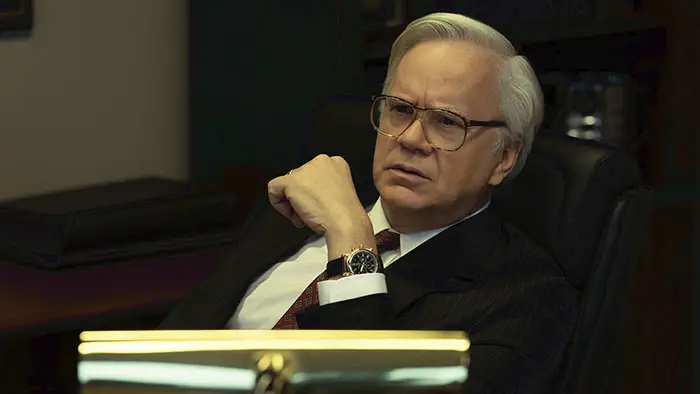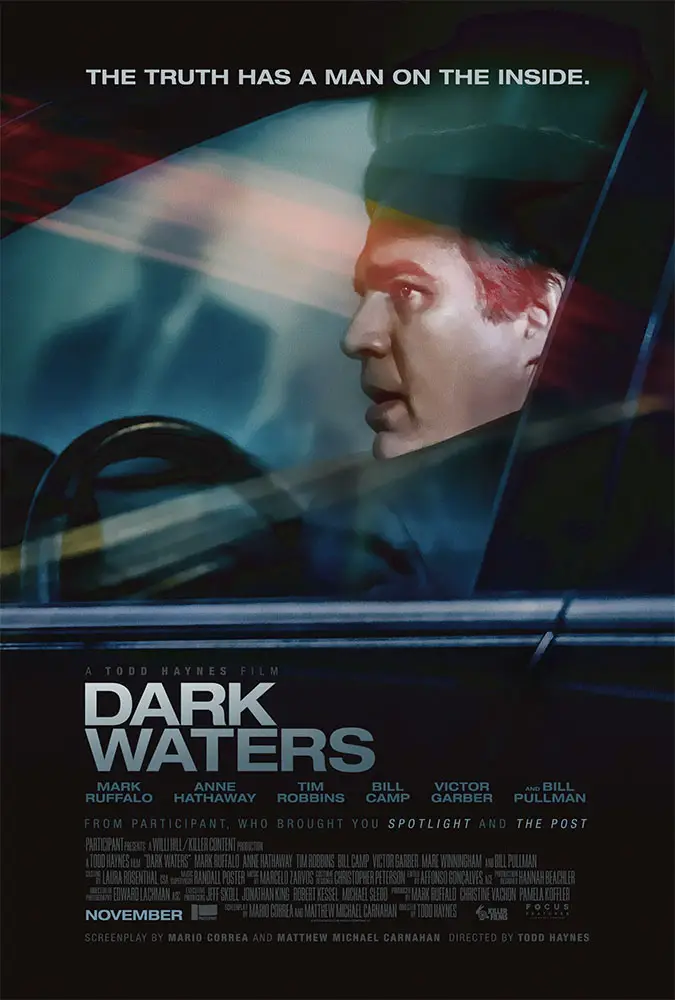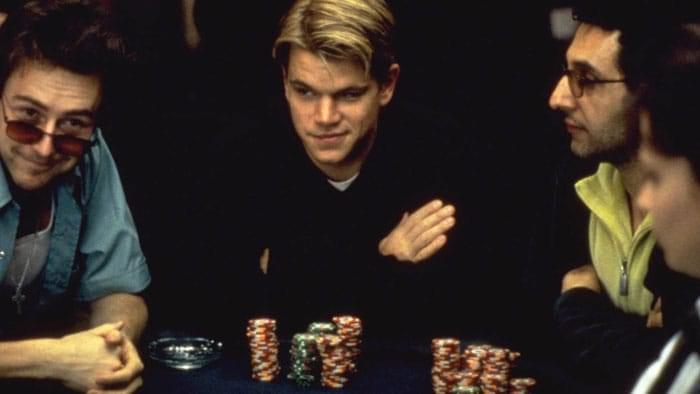
Billot was the focus of a documentary in 2018 about the DuPont chemical dumping: The Devil We Know. He also wrote a memoir about his involvement in the case called Exposure: Poisoned Water, Corporate Greed, and One Lawyer’s Twenty-Year Battle Against DuPont. Director Todd Haynes’ film and the documentary that preceded it inform and alert us. We are compelled to ask, in a world where this can happen, what other contaminants are affecting the environment that we don’t yet know about?
I have a special relationship to this story: I grew up in Parkersburg. The Mid-Ohio Valley is my home turf. I worked summers in Washington bottom, a few miles from DuPont, doing house projects for my high school astronomy teacher and mentor. My memory of DuPont is that of a positive influence in the community as one of our largest employers. It was considered poor form to speak ill of the company. My sister was tested in the C8 study. My brother informs me that his town of Vienna, WV (a few miles upriver from the DuPont site, where Rob Billot’s grandmother lived) just had new drinking water filters installed by DuPont specifically to remove increased levels of C8 recently detected.
Staying focused on the science in this narrative is crucial. It should not become grist for the mill in conspiracy-theory tin-hat knee jerk reactions. The crucial fact is the malfeasance of Big Chem, disregarding the potential environmental impacts of their products. DuPont dumped the chemical with impunity, never bothering to research the effects of it. There’s plenty to process without straying from the fact that the company has been poisoning first my hometown, and then the whole world, for 70 years.

“…artfully blurring the lines between documentary and drama.”
The performances in the film are up to snuff for the top-level cast. Ruffalo and Robbins have always delivered. Hathaway is underutilized as the Bilott’s long-suffering wife, but she shines in her few moments. Bill Pullman goes all in with his good-old-boy batting for the environment, Harry Deitzler. Victor Garber, as the CEO of DuPont, Phil Donnelly, swaggers with the right balance of smug arrogance.
The film includes mention of Bucky Bailey, who was born with severe facial deformities resulting from his mother having been exposed to C8 at the plant while pregnant. Mr. Bailey himself has a cameo.
As with any film set in rural America, mistakes were made. The accent adopted by Bill Camp as West Virginia cattleman Wilbur Tennant is somewhere between the intonation of a Welsh farmer and Hank Hill from King of the Hill. Mark Ruffalo speaking as Billot is, at times, too much the hick/hillbilly. He also doesn’t maintain the accent throughout. Pullman has similar problems portraying a person from West Virginia. Hathaway, Garber, and Robbins don’t try for accents, which is the right call. Mid Ohio Valley speech tends to sound more neutral midwestern than the thicker, more specific drawl from the mountains. There is definitely a mountain accent to be found, but not down at the river. Accents should be researched and detailed in a film, in case a film critic from that part of the world notices the difference. The residents certainly will.
However, the film presents West Virginians with respect, and that deserves to be applauded. This is not always the case in the rare occasions when Appalachia makes it into the media.
Dark Waters wildly succeeds at telling this story. While playing fast and loose with some of the characterizations, it hews closely to the salient facts of the case. Haynes carefully navigates the risky terrain of presenting real people (who are still among us) and facts in a scripted feature film, artfully blurring the lines between documentary and drama.
There’s been some Oscar buzz around the film, and while that may be well deserved in a typical year, it’s a hard argument to make this year with the other powerful films in play. Destin Daniel Cretton’s Just Mercy is another heartfelt drama based on actual events, for example.
Haynes has created a film here, though, to be sure, that informs and entertains, and to call it thought-provoking would be an understatement. Considering the implications of a corporation poisoning a town, and the river, without so much as a fare-thee-well from the board of directors, is downright terrifying.

"…farmers who believe the local DuPont plant is dumping toxic waste in a landfill adjacent to their property..."


I grew up in Parkersburg. Left it in ’74 when I got married and moved to MD. I still have family there and love my hometown. I was always suspicious of the big plants dumping toxic waste…..not just DuPont. There was also Marbon and Cyanamid if my memory serves. I may be spelling names incorrectly. My brother-in-law living in Vienna died from kidney cancer. His next door neighbor died from kidney cancer close after. I developed breast cancer in 2002. I have not seen the movie but do plan on viewing it. I know that most if not all Dupont employees deny any wrongdoing by their employer. I can understand not wanting to believe a company could be capable of such heinous acts. It is hard to wrap one’s head around that.
In reading this article I am pleased that the Parkersburg residents are portrayed respectfully but wish they had gotten the midwest accents done correctly…..not southern, not northern, mostly midwestern. Parkersburg has certainly changed since I lived there and maybe my perspective has too. I am saddened when I return, by a lack of a recognizable and vital downtown area and an overall depressed feeling and look. I love my roots and my High School and feel blessed to have been born there. I would love to see a revitalization of this town with a reduction in the overall opiod epidemic that has plagued many other WV towns as well. Graduating from West Virginia University continues my defense of my home state through the sports arena, always having to promote the state I love. I am glad this movie is making people think and be aware. Too bad wrongs cannot be undone but they certainly should be recognized and those responsible held accountable.